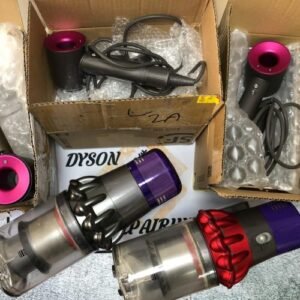Solar energy has gained immense popularity in recent years, and it’s no wonder why. It offers a sustainable, eco-friendly solution for reducing energy costs and protecting the planet. Whether you’re considering installing solar panels on your home or just curious about how it works, this article will provide you with all the necessary information.
What is Solar Energy?
Solar energy is the power derived from the sun’s rays. It is harnessed using solar panels, which convert sunlight into electricity. This energy can then be used to power homes, businesses, and even entire cities.
Solar power is a renewable resource, meaning it won’t run out. Unlike fossil fuels, which are limited and cause pollution, solar energy is clean and sustainable.
How Solar Panels Work
Solar panels are composed of many smaller units called photovoltaic (PV) cells. These cells absorb sunlight and create an electric field across their layers, generating electricity.
Here’s how the process works:
- Sunlight hits the solar panels.
- PV cells within the panels convert sunlight into direct current (DC) electricity.
- An inverter converts DC electricity into alternating current (AC), which is used to power homes and businesses.
This system allows for clean, efficient energy production that can meet a wide range of electricity needs.
The Advantages of Solar Energy
There are numerous reasons why switching to solar energy is beneficial. Below are some of the most significant advantages.
1. Reduced Energy Bills
One of the most appealing benefits of solar energy is its ability to drastically reduce your monthly energy bills. Once installed, solar panels begin generating electricity, which means you’re less reliant on energy from the grid. Depending on the size of your system and your location, you could potentially eliminate your electric bill entirely.
2. Environmentally Friendly
Solar power is a clean, green source of energy. It reduces reliance on fossil fuels, which contribute to global warming and pollution. By switching to solar, you’re taking a significant step toward lowering your carbon footprint and helping combat climate change.
3. Energy Independence
With solar power, you can produce your electricity and become less dependent on utility companies. This means you’re protected from rising energy costs and power outages.
4. Low Maintenance
Solar energy systems are low-maintenance and built to last. Solar panels have no moving parts, which means they require very little upkeep. Most systems come with warranties lasting 20-25 years, so once they’re installed, you’re set for decades.
5. Increases Property Value
Homes equipped with solar panels often see an increase in property value. Buyers are willing to pay more for a home that comes with lower utility bills and environmentally-friendly features. A solar installation is considered a valuable asset.
Common Myths About Solar Energy
Despite its many benefits, there are still some misconceptions about solar energy. Let’s debunk a few of these myths:
Myth 1: Solar Energy is Too Expensive
While the initial cost of solar panels may seem high, prices have dropped significantly over the years. In many places, there are also government incentives and rebates available to offset the cost of installation. Furthermore, the savings on energy bills often make up for the initial expense in just a few years.
Myth 2: Solar Panels Only Work in Sunny Climates
Solar panels don’t require constant sunshine to work effectively. They can still generate electricity on cloudy days. In fact, solar power systems are used successfully in many regions with less sunlight, such as Germany and the UK.
Myth 3: Solar Panels are Hard to Maintain
As mentioned earlier, solar panels are low maintenance. Occasional cleaning and routine inspections are usually all that’s needed to keep them functioning optimally.
Solar Energy for Businesses
Many businesses are also switching to solar energy for several reasons, including cost savings and sustainability. Large commercial buildings, warehouses, and factories can install solar panels to reduce their reliance on the grid.
Financial Benefits for Businesses
Companies that switch to solar energy often experience a reduction in operating costs. The savings can be substantial, especially for businesses that consume a large amount of electricity.
Additionally, businesses may qualify for tax incentives and rebates, further reducing the cost of going solar. These financial benefits, combined with the positive environmental impact, make solar energy an attractive option for many companies.
Solar Energy and the Future
As technology continues to advance, solar energy will become even more efficient and affordable. Innovations like solar battery storage allow homeowners and businesses to store excess energy generated during the day for use at night or during cloudy weather. This further increases the reliability and value of solar power.
With growing concerns about climate change and the depletion of natural resources, the demand for renewable energy sources is expected to rise. Solar power is leading the way in this transition, making it a crucial part of our sustainable future.
Conclusion
The benefits of solar energy are clear: lower energy bills, environmental protection, energy independence, and long-term savings. Whether you’re a homeowner, business owner, or simply interested in sustainable energy, now is a great time to consider making the switch to solar power. Not only will it save you money, but it will also help protect the planet for future generations.

















